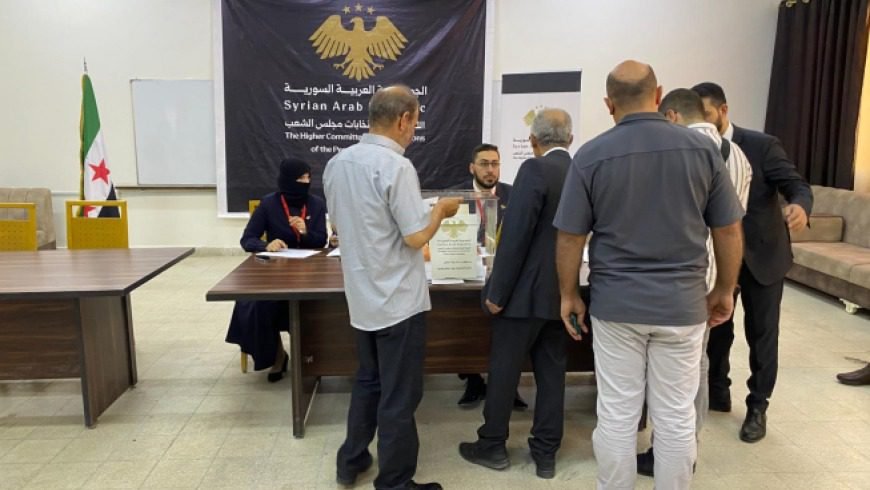Syrian parliamentary elections are not a transparency issue but a structural one

The indirect Syrian parliamentary elections held yesterday were rejected by the SDF and Druze-led groups in Suwayda. Elections did not take place in Suwayda, Hasakah, or Raqqa.
Context: Bedran Chia Kurd, a senior official from the SDF-led administration in northeast Syria, told Al-Hadath that they rejected the process because the mechanisms are not “free and fair elections” and are “neither democratic nor transparent.” His statement echoes the familiar discourse surrounding electoral legitimacy—but the deeper issue runs beyond procedural fairness.
Analysis: In Afrin, a historically Kurdish-majority town in northwest Syria that was under YPG control before Turkey’s 2018 occupation, three assembly seats were allocated for the district—and all three were won by Kurds. While these three representatives are independents who support Syria’s new post-Assad order, their victory carries symbolic weight. It signals the new regime’s recognition of Afrin’s Kurdish majority, despite dramatic demographic shifts since 2018 caused by incoming IDPs from other parts of Syria and the displacement of many Kurds. These shifts have partially reversed following Assad’s collapse, with many Arabs returning to their original areas and a growing number of Kurds returning to Afrin.
However, on the same day those three Kurdish candidates won, Interim President Ahmad al-Sharaa issued a national-holidays decree that declined to recognise 21 March as Newroz, designating it instead as Mother’s Day. The juxtaposition is revealing: Kurdish representation in Afrin offers a veneer of diversity, while the holiday decision exposes the limits of substantive recognition. In other words, the new assembly appears designed to provide legitimacy and optics rather than to redistribute power.
The core problem is therefore structural, not merely procedural. Even if the elections were perfectly free and fair, the SDF and the Druze of Suwayda would still have little incentive to participate. Based on the district-by-district seat allocation, Kurdish factions—SDF-aligned or otherwise—would, at best, secure around 15–17 seats (roughly 7%). Suwayda has only three out of 210 seats (about 1.5%). In such a configuration, both would remain marginal minorities in a parliament that is itself unlikely, at least for now, to exercise meaningful influence over the presidency.

For the SDF—which controls roughly one-third of Syria and wields real authority on the ground—trading tangible power for token parliamentary presence makes little sense. The case is similar, if not stronger, for Druze militants in Suwayda, who would be legitimising an institution in which they would be structurally sidelined.
In a conflict-ridden, regionally fragmented Syria, a single chamber elected by proportional representation disincentivises minorities from taking part; it entrenches majoritarian dominance that these groups have already checked by force. The SDF’s boycott is thus less about flawed procedures and more about rational cost-benefit: participation would weaken its bargaining power and lock in structural disadvantage.
The SDF’s boycott, therefore, is not a rejection of procedure but a rational response to structural exclusion. Unless a new governance design is negotiated—one that empowers minorities to participate meaningfully—there is little reason for the SDF to join. A bicameral model, for example, could help: keep one chamber proportional, but pair it with a senate-style body that balances population with territorial or communal representation. Without such structural guarantees, Kurds, Druze, and others have scant incentive to engage with the current electoral process.









